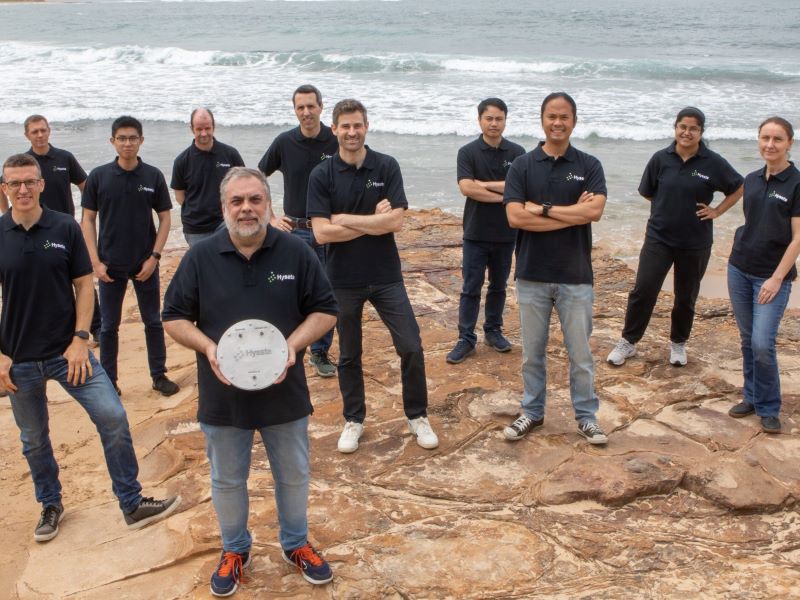Low-cost green hydrogen, construction site dust monitors, AI-based crop prediction software and a connected vehicles platform are among the solutions to receive support from the New South Wales government’s Physical Sciences Fund this year.
2022 recipients were announced at an event in Sydney on Wednesday, marking the fourth year the $5 million fund has been deployed by the state’s chief scientist to support local device commercialisation.
The companies to share in $5 million this year are Wollongong electrolyser startup Hysata, environmental management monitor, Sydney-based device and software company SiteHive, agrifood firm The Yield, and Wagga Wagga connectivity solutions provider Zetifi.

The Physical Science Fund (PSF) was set up in 2019 to offer competitive funding to New South Wales-based individuals, research organisations and businesses to help commercialise devices typically between three and seven on the Technology Readiness Level scale.
If the device reaches an agreed level of economic success, the grant recipient repays the money to the Physical Sciences Fund to help support future innovations in the state.
Previous recipients include the UNSW Sydney SMaRT Microfactory Technologies glass recycling, space data startup QuasarSat, and dye shifting agrifoodtech Lleaf.
The fund will increase to $10 million next year, with applications opening early in 2023.
The 2022 cohort includes two companies to have already accessed the Physical Sciences fund in prior years for different devices.
Zetifi received a grant in 2020 to develop its long-range “sleepy” WiFi cells and repeaters. This year the PSF will fund the company’s contiumued development of ZetiLink, a connected and autonomous vehicle platform.
Wollongong electrolyser company Hysata received a PSF grant last year to test and optimise electrodes and increase hydrogen output. This year’s grant will go to commercialising the technology in a new electrolyser that Hysata says is around 20 per cent more efficient than other electrolysis system and cheaper to manufacturer.
Hysata closed an oversubscribed $42.5 million series A funding round in August to expand its team and set up a manufacturing facility.
The other 2022 PSF recipients are Sydney-based environment monitoring companies SiteHive and The Yield.
SiteHive’s grant is for its Hexanode device, which provides real-time data based on a digital, multi-sensor monitor that measures noise and dust for construction projects.
Agrifood tech The Yield is using devices and software to reduce the 25 per cent wastage from crops never even leaving the farm due to pests, disease, handling or weather.
The PSF grant will go to developing its devices and software that forecast weather and provides on-farm yield predictions. The company claims farmers using the solution average a 10 per cent increase in farmgate value – a potential multi billion dollar saving across the national agriculture sector.
The 2022 recipients were announced Wednesday evening at an event at Fishburners in the Sydney Startup Hub.
The state’s chief scientist and engineer Professor Hugh Durrant-Whyte said PSF complements a research and innovation push in New South Wales.
“This year we released our 20-year R&D roadmap, which provides a blueprint to prioritise investment in areas where NSW has competitive R&D advantages nationally and internationally,” he said.
“It is great to be able to celebrate four young companies who are developing technologies with great potential and starting out on their commercialisation journey.”
The Office of the Chief Scientist also oversees the state’s other commercialisation programs, including the Small Business Innovation and Research Program, while the government has also funded a deep tech training program this year.
“The successful recipients are developing devices and applications which will deliver real-world benefits to our state in agriculture, communications, clean energy and construction, which will help grow the economy and secure a brighter future for NSW,” Minister for Science, Innovation and Technology Alister Henskens said.
Do you know more? Contact James Riley via Email.

